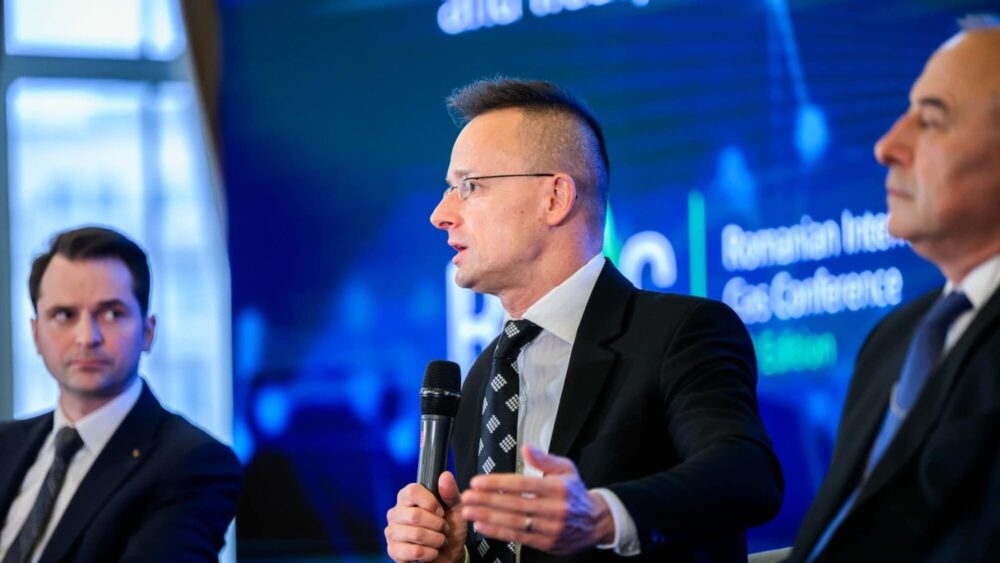
Hungarian Foreign Minister Péter Szijjártó in Bucharest, November 8, 2023.
Photo: Péter Szijjártó / Facebook
Romania and Bulgaria had been waiting for Schengen membership for years, hoping to become part of the free movement area by the end of the summer, only to have a few remaining countries stand in the way, seemingly freezing negotiations.
Romania’s Schengen accession, however, is one of the key priorities of Hungarian neighborhood policy, and Budapest will utilize its position as Council president in 2024 to finalize the process, Hungarian Foreign Minister Péter Szijjártó promised in Bucharest on Wednesday, November 8th.
“Romania becoming a member of the Schengen Area is a clear national interest of Hungary,” Szijjártó said. “Romania is Hungary’s second-largest export market; its Schengen membership will obviously make our economic and trade relations much stronger.”
The foreign minister stressed that if Romania is still not a member by July next year, at the start of Hungary’s term at the helm of the Council, “one of the primary goals of the Hungarian EU presidency will be to help Romania in this regard.”
The minister traveled to the neighboring capital to attend the sixth Romanian International Gas Conference, an important forum that brings together policymakers and industry representatives to discuss innovative ways to strengthen the energy security of the Black Sea region and neighboring countries.
After speaking at the conference, Szijjártó met with Hunor Kelemen, the president of the RMDSZ, the largest party representing ethnic Hungarians in Romania. “We consider [the local Hungarian] community as a resource, a connecting link in the relations of our countries,” the Hungarian foreign minister said, adding that following Romania’s Schengen accession, “the border will no longer divide but connect us.”
Despite the persistent Austrian vetoes against Romania and Bulgaria’s Schengen membership, the current Spanish presidency still hopes it will hammer out an agreement during the upcoming meeting of the bloc’s internal ministers in early December.
So far, Austria has been adamant about delaying Romania’s Schengen accession and is preparing to veto it again in December. The reason that’s consistently being referred to is illegal migration, as Vienna is pointing to the increasing number of temporary internal borders reintroduced across the Schengen area due to the growing migratory pressure and failure of external borders.
However, Bucharest and Sofia argue that they are both located outside of the main Balkan migrant route, which goes through Serbia and enters the EU through the Hungarian and Croatian borders. Nonetheless, Austrian Chancellor Nehammer made clear at the end of October that Vienna’s problems lie not with the two countries but with Schengen itself, hinting at a need for Schengen reforms and strengthening external border protection before lifting the veto.
“Our position is that the Schengen system as a whole does not work; therefore, we are not open to its expansion,” Austrian Interior Minister Gerhard Karner said back in August, the last time the enlargement was on the Council’s table.
Hungary’s contribution, therefore, could be even more important in this debate. The country has long been a major advocate for EU border protection and has been cooperating closely with Austria and Serbia against illegal migration for years. After assuming the EU presidency in July 2024, Budapest would likely find the right approach to soften Vienna’s stance and address its concerns at the same time.
The case of Bulgaria is somewhat more complicated, as the country’s accession is also being blocked by the Netherlands, which demands Sofia implement reforms to combating corruption and organized crime before joining the passport-free zone of Europe. The Hague initially maintained the same position against Romania as well, but dropped its opposition a few months ago, leaving only Vienna at odds with Bucharest.
